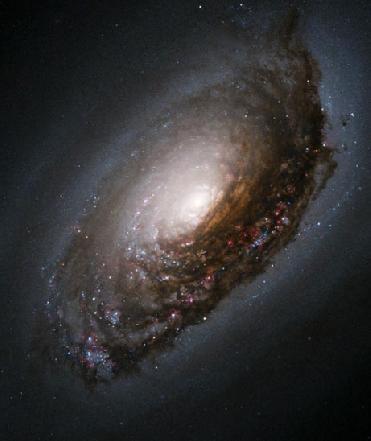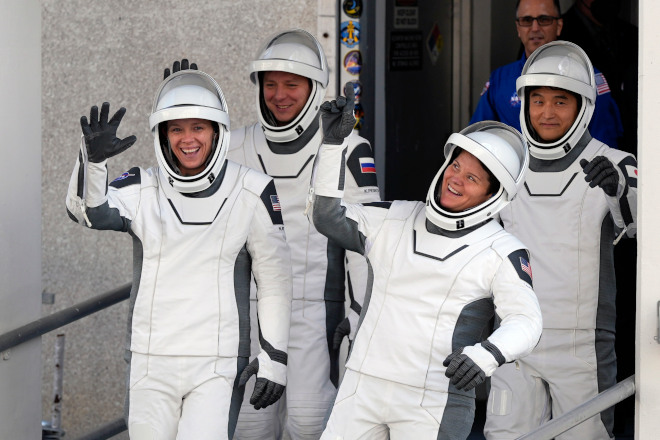
The Black Eye galaxy is seen in this Hubble Space Telescope image released in 2004. -- File Photo
MOSCOW (BNS): Russia, in partnership, with Germany, will launch the Spectrum-Roentgen-Gamma (SRG) satellite into space in 2012 to help scientists study the role of dark matter in the structure and evolution of the Universe.
The Russia's Federal Space Agency and German Aerospace Center inked a pact on Tuesday to launch the German eROSITA X-ray telescope and Russian ART-XC device on board the Russian SRG satellite, RIA Novosti, quoting a Russian research institute, said on Wednesday.
The satellite, fitted with the telescopes, will explore thousands of new galaxy clusters and active galaxy cores. It will be launched into orbit in 2012 from the Baikonur space center in Kazakhstan on board a Soyuz carrier rocket, the Moscow-based Institute for Space Research said.
�As a result of the joint SRG mission, we are expecting to find about 100,000 new galaxy clusters and over 3 million new active galaxy cores, which may contain ultra-massive black holes,� the news agency, quoting a statement issued by the institute, said.
The observatory will use the most sensitive to date high-energy mirror detectors to survey the galaxy clusters in its quest for the dark matter.
The discovery of new dark matter sources will help astronomers create a more precise model of the structure and evolution of our Universe, the statement said.
 Previous Article
Previous Article Next Article
Next Article













The Indian Air Force, in its flight trials evaluation report submitted before the Defence Ministry l..
view articleAn insight into the Medium Multi-Role Combat Aircraft competition...
view articleSky enthusiasts can now spot the International Space Station (ISS) commanded by Indian-American astr..
view article